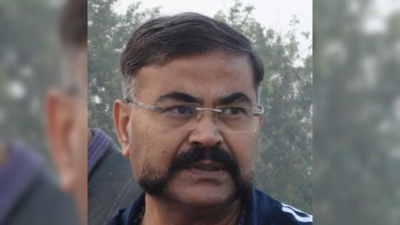ARTICLE AD BOX

I
n any democracy, a fair and transparent recruitment process is not merely an administrative formality, it is also a foundational pillar for building the future of a generation.For millions of youths, especially from underrepresented or economically disadvantaged backgrounds, govt jobs are more than employment — they are a symbol of dignity, security, and social advancement.When recruitment is based solely on merit, it strengthens public trust, ensures that institutions are staffed with capable individuals, and upholds the rule of law. Transparency and fairness in recruitment not only shape the lives of individuals but also reinforce the moral credibility of the state.The story of the recent police recruitment in Uttar Pradesh exemplifies how political will, institutional reform, and the use of technology can collectively transform a system, once plagued by irregularities, into a model of trust and efficiency.Prior to 2017, UP’s development trajectory was hindered by inadequate law and order, inconsistent industrial policy, and lack of strong political resolve. In such a landscape, govt employment, especially in police and public services, became one of the few reliable aspirations for young people.
However, recruitment in the govt sector has long been shadowed by controversy. Police recruitment, too, was no exception. To restore public confidence and institutional credibility, the govt established the Uttar Pradesh Police Recruitment and Promotion Board (UPPRPB) on Dec 2, 2008. Tasked with ensuring fair, efficient, and time-bound recruitment for non-gazetted police posts, the board introduced reforms and adopted a transparent system for its functioning.Yet, even as the process evolved, a new challenge emerged — the rise of organized cheating rackets. These syndicates specialized in leaking question papers, facilitating impersonation, and exploiting weaknesses in the examination system, from printing of the question papers to delivery.The turning point came in 2017, when a renewed political will to cleanse the system coincided with a wave of institutional reform.Under the leadership of Chief Minister Yogi Adityanath, the govt initiated bold steps to strengthen the examination system and end the reign of the so-called “cheating mafia".Special units like the Uttar Pradesh Special Task Force (STF) were brought in to dismantle these inter-state rackets. Modern technology, strict accountability, and inter-agency coordination became central pillars of the new approach.What set this transformation apart was the govt’s willingness to act — decisively and fearlessly. Even the smallest complaint regarding irregularities was thoroughly investigated. When necessary, entire examinations were cancelled and reconducted.This zero-tolerance approach sent a strong message: that no compromise would be made on merit and integrity. It was a bold departure from the past and a reflection of the state’s political leadership.This commitment to probity was put to test during the Police Constable Recruitment Examination of 2023. Allegations of question paper leaks in the initial rounds forced the state to cancel the examination. Rather than succumbing to expediency, the govt chose to reinforce the process.Exam centres were carefully vetted; biometric verification of candidates was mandated; and security around paper-setting and transportation was tightened.
Magistrates and police officials were deployed at all the centres, and mobile units ensured quick response to any suspicious activity. The CCTV surveillance monitored both the examinations and the question paper logistics.The scale of operation was unprecedented. Over 48 lakh candidates, including more than 15 lakh women, participated in the examination. It was conducted over five days and 10 shifts across 1,174 centres in 67 districts.To ensure that no candidate was unfairly burdened, the govt even arranged free transportation — especially for those who had travelled earlier for the cancelled examination. No exams were held at previously flagged or suspect centres.On March 13, 2025, the results for 60,255 successful candidates, including 12,048 women, were declared. This marked the largest police recruitment in the history of independent India — both in terms of scale and procedural integrity.The credit for this achievement goes to both the state govt and the police department, which worked tirelessly to make the process not only efficient but also inspiring.Equally remarkable is what follows: the challenge of training such a large batch of constables. For the first time, more than 60,000 recruits will undergo year-long police training simultaneously — a logistical feat that the department has prepared for with careful planning and govt support.These selected candidates will receive their appointment letters from the Union home minister in the presence of the chief minister.It will not just be a formal ceremony, but a powerful reminder of what is possible when merit triumphs over manipulation. For the recruits and their families, it will be a moment of immense pride — the culmination of years of effort, resilience, and hope.As they step into their roles and begin serving the people of Uttar Pradesh, they carry not just the uniform, but the faith of a system that refused to settle for anything less than fairness. Their success is a testament to a state that chose integrity — and in doing so, chose a better future.
(The writer is the former director general of police, Uttar Pradesh)



.png)
.png)
.png)
















 3 days ago
10
3 days ago
10









 English (US) ·
English (US) ·